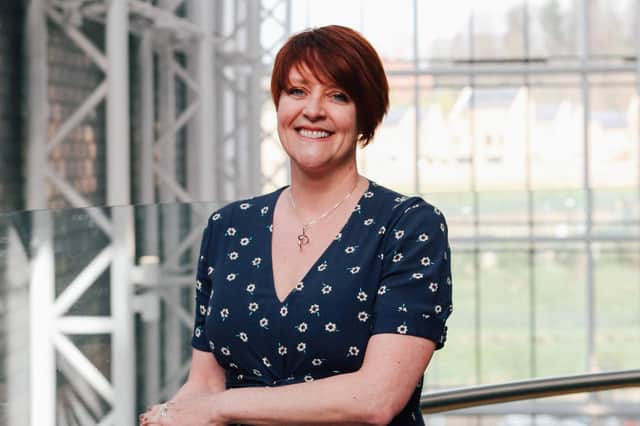Sheffield College launches #NotOn campaign to raise awareness of sexual harassment and violence


#NotOn is being led by The Sheffield College Students’ Union and backed by the College’s Student Participation team.
The month-long campaign aims to highlight the support services available to survivors of sexual violence and harassment and reaffirm the College’s zero tolerance approach.
Advertisement
Hide AdAdvertisement
Hide AdRunning until mid-May, the campaign is appealing for backing from Sheffield’s civic and political leaders and calling on organisations in the city to adopt the ‘Ask for Angela’ scheme or similar.
The College would like to see a wider adoption of the scheme beyond bars, pubs and clubs in Sheffield, involving services used by young people aged 16 to 18, such as public transport and fast food outlets. In the scheme, created by Lincolnshire County Council, customers use a codeword in a venue if they feel unsafe and are discreetly supported to leave the premises.
#NotOn will also see a new online resource for college students to anonymously report any safety concerns or incidents, and provide support. In addition, the campaign will highlight the role that different agencies play in keeping students safe at the College and within their local communities.
Angela Foulkes, college Chief Executive and Principal, said: “The safety and wellbeing of our students is absolutely paramount. We have a zero tolerance approach to sexual harassment and violence and take all complaints and allegations extremely seriously. However, we are not complacent. That’s why we have launched the #NotOn campaign.”
Advertisement
Hide AdAdvertisement
Hide AdShe added: “We recognise there is more work to do to raise awareness of acceptable behaviour and ensure our students know how to access confidential safeguarding support if they feel unsafe on campus, at home or within their community. It’s great to see The Sheffield College Students’ Union being proactive on this incredibly important issue.”
Kathryn Fulton, Student Union President, said: “Sexual violence and harassment of any type is unacceptable and has no place in our college It can have devastating consequences on the wellbeing, mental health and education of those affected. This is not just an important issue for the College but requires that city leaders, businesses and community organisations take a stand as well.”
The National Union of Students’ Sexual Violence in Education report in 2019, explored, for the first time, further education students’ experiences of sexual violence including sexual harassment, domestic abuse, sexual assault and rape.
Based on a national survey of 544 college students, the research found that 48 per cent of respondents had experienced unwanted sexual remarks and more than one in three had experienced unwanted sexual contact such as pinching or groping, with a similar proportion having had someone attempt to kiss them against their will.
Advertisement
Hide AdAdvertisement
Hide AdThe report found that the vast majority of all reported sexual harassment was carried out by men with women respondents being significantly more likely to experience this However, women were responsible for 17% of unwanted sexual behaviour.
The research found that students with disabilities were significantly more likely to experience sexual harassment and assault than learners without disabilities, and LGBT+ respondents were disproportionately affected by unwanted sexual behaviour compared to their heterosexual counterparts.
Approximately 12 per cent of all respondents had experienced rape with men being the perpetrators in 93 per cent of cases, according to the report.
Researchers found that the impact of sexual harassment and violence has grave consequences on those affected, negatively impacting on their wellbeing and ability to focus on and succeed in their education, as well as making them feel unsafe and anxious, leading to mental health issues including self harm, and substance misuse.